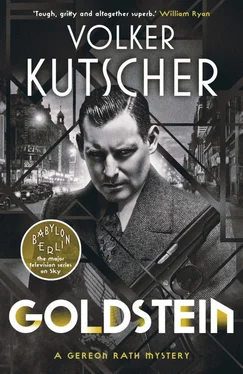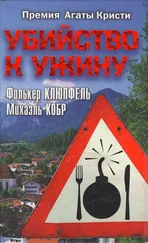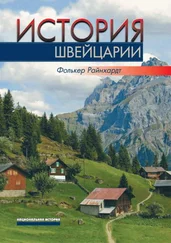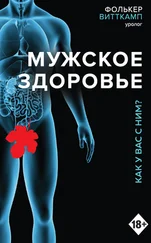‘Not at home, which I can understand, after everything that’s happened. The break-in, I mean.’
‘She really isn’t here? I heard footsteps on the stairs just now.’
‘Footsteps? Well, that must have been me.’
‘You alone?’
‘Me and my dog,’ Rath said. ‘What business is that of yours, if I might ask?’
‘Fräulein Ritter is behind on her rent. She said she would have the money by yesterday evening. Only, yesterday evening she wasn’t home.’
Rath remembered how Charly had asked him for a loan. No wonder he had forgotten, after everything that had happened. How they could use Alex’s hundred and fifty marks now.
‘You’ll get your money, Herr Maltritz. Fräulein Ritter has… ah… asked me to settle up.’
‘Good,’ Maltritz said, looking expectantly.
‘What is it?’
‘I’m waiting for the money.’
‘I don’t have it for you now .’
‘Listen: go tell your cock and bull story to some kids. Maybe they’ll believe it, but I will not be taken for a fool. Wherever Fräulein Ritter is hiding, whether it’s in this flat or somewhere else, please let her know that Hans Maltritz is not to be messed with.’ He placed his hands on his hips. ‘I don’t care who pays, whether it’s you, Fräulein Ritter, or your monkey’s uncle, but if I don’t have twelve marks fifty by tonight you’ll see a different side to me. You wouldn’t believe how quickly I can get hold of an eviction order.’
Twelve fifty! What a ridiculous sum to make such a fuss about! ‘Don’t do anything rash,’ Rath said. ‘You’ll have your money. I’ll go to the bank later today.’
‘Are you being funny with me?’
‘Nothing could be further from my mind.’
‘Then you obviously haven’t seen the papers. You won’t be getting any money at the bank. I hope you’ve got another source of capital.’ He looked Rath up and down. ‘I don’t care how you get it. Just make sure you do!’
Once the man had gone downstairs, Rath looked out his copy of the Vossische Zeitung , bought to rub the Goldstein article in Tornow’s face.
It was a different story that had made the front page: a German banking crisis. He skimmed the article and continued flicking through the paper. The stupid buildings manager was right, getting money from the bank today would be impossible.
The Danatbank had hit the skids over the weekend and could no longer pay out to its customers. The Darmstädter and Nationalbank! But that was a perfectly reputable enterprise. Rath had his money elsewhere, in a postal giro account, though things didn’t look too rosy for the other banks either. Fearing for their deposits, an onslaught of customers had attempted to withdraw cash, causing most banks to close their counters – only increasing the sense of panic. Rath felt himself worrying about the few thousand marks he had set aside for a rainy day. As if he didn’t have enough on his plate already.
The Danatbank had been so badly hit that the government had been forced to guarantee all deposits. ‘Aunt Voss’, as the Vossische was known, wrote that following discussions with the government, all other major German banks have declared that they view any government guarantees as superfluous, that they are fully solvent and capable of meeting all demands.
Even so, all bank counters would remain closed for the next few days. Arrogant bastards, Rath thought. He didn’t have much time for the financial industry, which he had never understood anyway. He knew even less about the financial crisis, which now seemed to have pulled the banks into its maelstrom. Only two years ago, any number of shares on the New York Stock Exchange had fallen through the floor, and speculators had jumped out of the windows of the city’s skyscrapers. Why enterprises that had nothing to do with New York should be affected, honest German companies for example, even German public servants such as himself who had seen their salaries cut, was a mystery to him.
To the economics editor of the Vossische too, it seemed. What we lack , was the title of his lead. What has happened? The factories, on which Germany’s economic strength has been built, are still standing, as they were four weeks ago. The German soil has yielded the same harvest as last year, if not better than in many previous years. Our reserves of coal and iron remain intact beneath the ground. In all these ways Germany is no poorer, so why the alarm? Because, although the German economy is as strong as ever in itself, we lack the fuel to drive it forward. We lack money.
How true, Rath thought, we lack money. Isn’t that what so many people have always lacked?
This catastrophe is upon us , the journalist continued, and it would be cowardly to turn a blind eye to the gravity of this unique situation. The collapse of a major German bank is without precedent in the country’s economic history.
What we are now experiencing is not inflation, but its exact counterpart.
Rath didn’t quite know if that was good news or bad. At first glance it sounded good: no inflation. That was something, surely. Nevertheless, it didn’t change the fact that money was in short supply. What a lousy world, he thought, remembering what Alex had said in the stairwell.
When he returned to the bedroom, Kirie was waiting eagerly. Charly was still fast asleep. ‘You dogs have it good,’ he said, stroking Kirie’s fur, ‘and not just when it comes to affairs of the heart.’
He sat beside Charly. She briefly opened her eyes and snuggled up to him, reaching for his hand. ‘I didn’t tell them anything, Gereon,’ she mumbled, more asleep than awake. ‘Not a thing!’ She closed her eyes as Rath pulled the covers over her shoulders and kissed her on the cheek.
‘I’m so sorry,’ he said, though he wasn’t sure she could hear him. At least it made it easier to admit his error. ‘If I had believed you none of this would have happened.’
He sat on the chair next to her bed and placed the Walther on his lap. He gazed at her, fast asleep in broad daylight. No one would ever take her away from him again.
Dusk was falling as the police vehicles pulled up. The enormous silhouette of the gasometer stood against the westerly glow of the night sky. It had rained in the early afternoon, and the pavement was glistening dark and wet. A great number of people and addresses stood on their arrest lists, stretched across all four corners of the city. Even so, Rath had opted for Schöneberg, just like Gennat. Böhm had gone to the West End, which made the decision easier still.
Right now, police units were stationed at seventeen different locations throughout the city. At eight on the dot they would swoop, so that those under arrest would be unable to warn each other. At seventeen different addresses in Berlin, the illusion that police officers were above the law was about to shatter.
Rarely had Rath found the passage of time so torturous as in these last few days.
Even after Charly’s release, little had changed. As far as possible he had kept his distance from Sebastian Tornow, though they had crossed paths on a number of occasions at work. Everyone was working with great zeal to make the chain of evidence in the case against Abraham Goldstein as tight as possible.
Everyone except Gennat, Böhm and Grabowski.
Rath was the only one who knew. Everyone else assumed they were looking into the Goldstein affair. No one suspected that they were actually conducting interrogations in an undisclosed location. Even less, that Helmut Grabowski was the man being interrogated by Homicide’s two oldest hands. They had needed three days to crack him, but then Grabowski started talking. Seventeen names, and enough background information to justify today’s arrests.
Читать дальше












